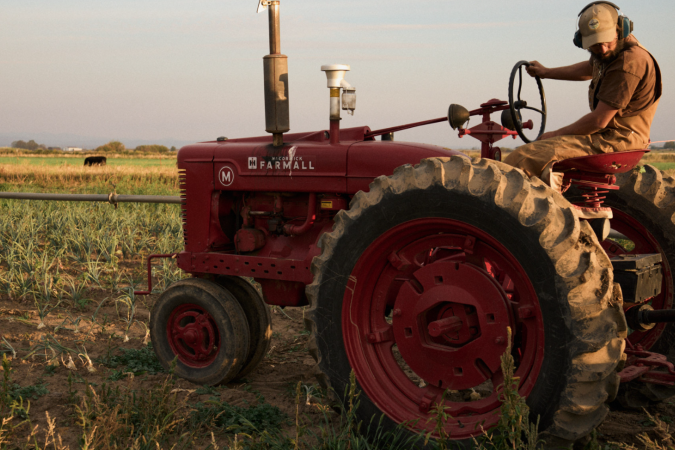This project was successfully funded by a loan from Steward Regenerative Capital.

This short term bridge loan will be used to execute on the remaining VAPG budget to help Casad Family Farms with their efforts to ramp up their meat sales.
Casad Family Farms uses Organic, Biodynamic, and Permaculture principles to sustainably steward 400+ acres of land in Madras, Oregon. The Farm is co-owned by husband and wife, Chris & Cate Casad. Both Chris and Cate are first generation farmers. Chris has been farming since he studied permaculture design as a young man, and Cate began volunteering on Chris' first farm in 2014. In 2017 they moved to their current acreage in Madras, Oregon. Chris and Cate believe in healthy soils, healthy food, and healthy communities.
This short term bridge loan will be used to execute on the remaining Value Added Producer Grant (VAPG) budget to help Casad Family Farms with their efforts to ramp up their meat sales. Over the past couple of years Casad Family Farms has pivoted away from vegetable crop sales into primarily meat sales for the long term resilience of the business. They have seen tremendous success in this pivot and have grown their direct to consumer meat program by over 200% in the past year.
Casad Family Farms has worked for many years to create a closed loop farm system that is influenced by biodynamic principles in which the farm ecosystem can rely on the soil, plants, animals and earthly influences for health, productivity, and holism. Nothing needs to be brought in, and there is no “waste” to remove. Specific regenerative and sustainable practices include:
Get project announcements, farmer introductions, company updates, and more by subscribing to the Steward newsletter. Join our growing community of people who are making regenerative agriculture the foundation of our future.
Join a growing community of sustainably-minded lenders reaping the rewards from responsible farming